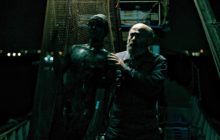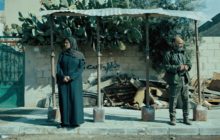Brothers Nasser: Love Persists in All Conditions
09. November
The charismatic Palestinian directorial duo, brothers Tarzan and Arab Nasser, talk about their second feature film, everyday life in Gaza, and romance and optimism which persist even in enviromnents filled with uncertainty. Their film Gaza Mon Amour is scheduled on ZFF’s program from Tuesday to Wednesday.
interview by: Anja Pletikosa
Gaza Mon Amour is the new film by directorial twin duo, brothers Tarzan and Arab Nasser, who have managed to achieve a truly wonderful festival track record in this festival unfriendly year, from Venice to Toronto, also becoming the Palestinian Oscar nominee.
Gaza is a very narrow strip in which extremely complicated political games are taking place. The local population which finds itself between the official government, Hamas as a militant and nationalist organisation, Israel and other states in the neighbourhood lives in constant fear, but also on the brink of survival. Politics, war, migrations and poverty are themes we know something about. However, the main story in the film is based on love, and we know little about love in Gaza. Is love in the context of conflict and instability in Gaza a taboo?
Our film is a story about the simple inhabitants who live in complex conditions: under Israeli occupation, siege and constant oppression. But the government, the islamic resistance movement Hamans, controls Gaza in the same way, using oppressive methods in order to insure its survival despite the obvious lack of perspective. We tried to show that love still exists in all these cruel and inhuman conditions. Only love motivates us to continue living, it is the true reason for our existence.
Your film features the 60-year-old Issa who falls in love. I will paraphrase my previous question. Is a 60-year-old in love taboo in the local society?
We are convinced there is no specific age for love. As long as the heart is beating, people can love. We therefore chose that man, who is ideal to prove that.
Your emotional, charming protagonist accidentally pulls Apollo’s statue from the sea, which causes a series of unfortunate situations. Why is that statue so problematic?
The appearance of one of the main pagan gods which were worshiped in ancient times in places like Gaza could change a lot in the local consciousness, don’t you think? The government in Gaza recognized the ancient statue could be profitable if sold, but it could also open diplomatic channels with other countries through museum institutions.
The film also follows the relationships between women. Where did you find inspiration for them?
Since we know all the characters in the film, they are undoubtedly inspired by reality. All their positive and negative sides are real, including the women in Gaza. Despite the fact that their social position is different from the one men have, women possess great strength and can firmly control their own lives. They do not need a man to protect them, because they can protect themselves, as well as impose their own choices.
Finally, one of the minor characters says at the beginning of the film he can’t wait to leave Gaza, where things can’t be worse. On the other hand, Issa knows his future lies in Gaza. At the end of the year which has challenged us all, my question is: can it be worse and where is the future?
We cannot know that for certain, but looking ahead, we have to remain optimistic.








